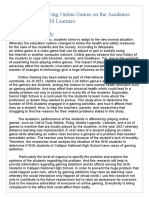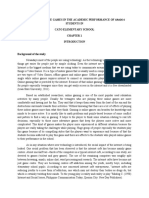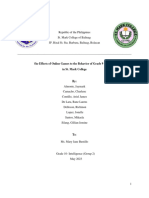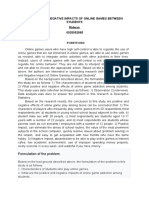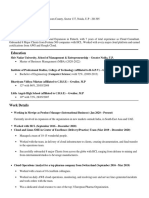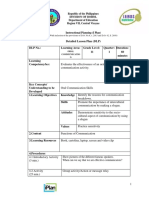0% found this document useful (0 votes)
97 views16 pagesPractical Research
This document discusses a study on the impact of online gaming on the social interactions of students at Namillangan National High School. It provides background on the rise of online gaming and its popularity among teenagers. While online games can provide benefits like stress relief and socialization, excessive gaming is linked to negative effects on mental health and academic performance. The study aims to determine how gaming habits affect students' social development and relationships by examining factors like internet addiction, gaming-related friendships, and emotional sensitivity. It seeks to understand if long gaming hours correlate with weaker social skills.
Uploaded by
davidabigail054Copyright
© © All Rights Reserved
We take content rights seriously. If you suspect this is your content, claim it here.
Available Formats
Download as DOCX, PDF, TXT or read online on Scribd
0% found this document useful (0 votes)
97 views16 pagesPractical Research
This document discusses a study on the impact of online gaming on the social interactions of students at Namillangan National High School. It provides background on the rise of online gaming and its popularity among teenagers. While online games can provide benefits like stress relief and socialization, excessive gaming is linked to negative effects on mental health and academic performance. The study aims to determine how gaming habits affect students' social development and relationships by examining factors like internet addiction, gaming-related friendships, and emotional sensitivity. It seeks to understand if long gaming hours correlate with weaker social skills.
Uploaded by
davidabigail054Copyright
© © All Rights Reserved
We take content rights seriously. If you suspect this is your content, claim it here.
Available Formats
Download as DOCX, PDF, TXT or read online on Scribd
/ 16




